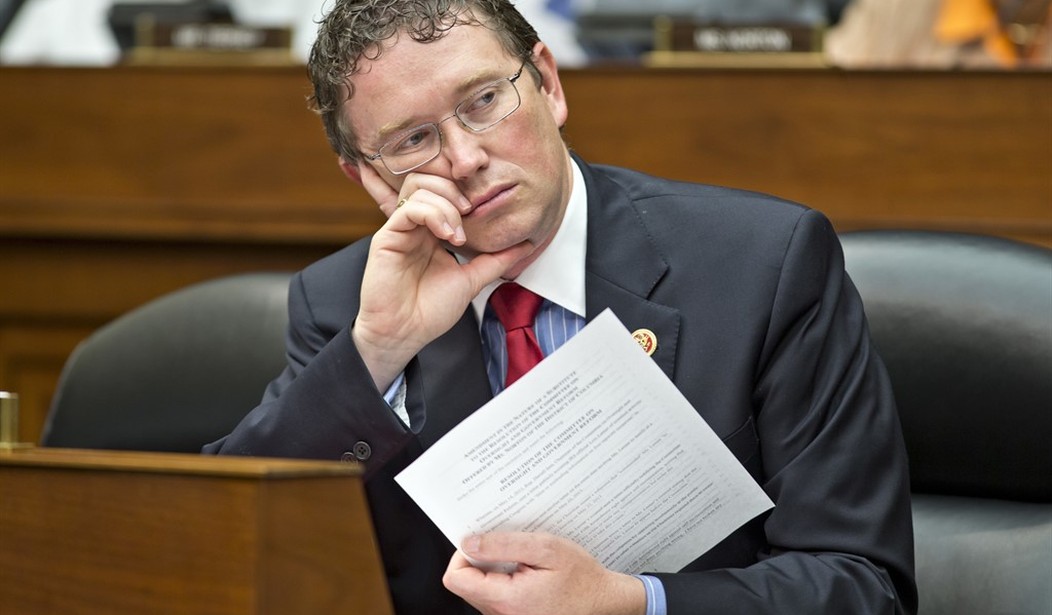Republicans and Democrats came together Wednesday to overwhelmingly pass a $7.85 billion aid package to help the victims of Hurricane Harvey. However, three Republican members of Congress voted against the legislation.
In the 419-3 vote, GOP Reps. Justin Amash, Andy Biggs, and Thomas Massie opposed the aid.
Amash said the reason he voted against the legislation was because he felt the funding should be offset instead of just added to the deficit.
“Congress should provide disaster relief funding, and we should pay for it now instead of billing our children and grandchildren for it,” Amash wrote on Twitter ahead of the vote.
Massie’s reasoning was similar.
"With $20 trillion dollars of debt, and in the absence of a budget to guide spending, I believe that unscheduled spending should be offset by equal cuts elsewhere," Massie said in a statement. "This bill recklessly increases the national debt because it contains no spending offsets."
Biggs opposed the legislation because it was attached to an unrelated matter.
"Shortly before today’s vote, with little time to read the final version of the package, the House attached hurricane relief funding to the READ Act, a bill that expands the size of government and ties foreign assistance to new education programs in developing countries. I firmly disagree with attaching disaster relief funding to a piece of legislation that needlessly expends taxpayer dollars to support international education," he said in a statement.
The bill will now move to the Senate, which will likely vote on the package this week.
Recommended
Most of the aid will go toward the Federal Emergency Management Agency, which is expected to run out of money by Friday.
As of 10 a.m. Tuesday morning, FEMA’s Disaster Relief Fund, which pays for the agency’s disaster response and recovery activity, had just $1.01 billion on hand. And of that, just $541 million was "immediately available" for response and recovery efforts related to Hurricane Harvey, according to a spokeswoman for FEMA who asked not to be identified by name.
The $1.01 billion in the fund Tuesday morning is less than half of the $2.14 billion that was there at 9 a.m. last Thursday morning -- a spend rate of $9.3 million every hour, or about $155,000 a minute. (Bloomberg)
"If it's down to $1 billion or less, then I would say there's a great concern," Elizabeth Zimmerman, FEMA’s former associate administrator for the office of response and recovery, told Bloomberg. "Congress needs to take action very quickly."
This is all being debated as Irma, a category 5 hurricane, is battering the Caribbean with the very likely possibility of heading toward Florida.
This post has been updated.

























Join the conversation as a VIP Member